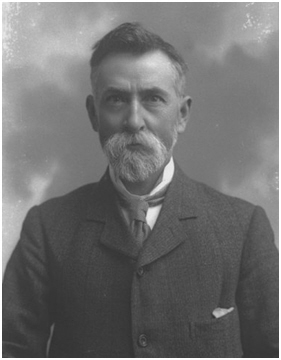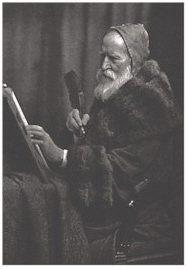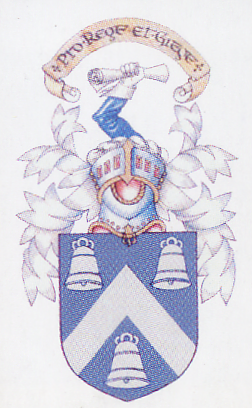|
Former Pupil Biographies
David Hay Fleming (1849 – 1931)
| FLEMING, DAVID HAY: Scotch Presbyterian; b. at St.
Andrews, Scotland, May 9, 1849. He studied at Madras College, St.
Andrews and then engaged in business (his family had a china and
stoneware business, which he sold in 1883 to devote himself to the
study of Scotch history.
In 1904-06 he was lecturer on church history in New College,
Edinburgh. In theology he was an old school Presbyterian and a staunch
Calvinist.
Among his writings those of theological interest are The Martyrs
and Confessors of St. Andrews (Cup-Fife, 1887); Mary Queen of
Scots from her Birth to her Flight into England (London, 1897);
The Scottish Reformation (Edinburgh, 1903); and The Story o f
the Scottish Covenants in Outline (1904). He has also edited
Register of the Ministers, Elders, and. Deacons of the Christian
Congregation of St. Andrews, Comprising the Proceedings of the Kirk
Session and of the Court of the Superintendent of Fife, Fothrik, and
Strathearn, 1669-1600 (2 vols., Edinburgh, 1889-90); A. F.
Mitchell's Scottish Reformation (Baud Lectures for 1899, 1900);
and Patrick Walker's Six Saints of the Covenant (2 vols.,
London, 1901).
|
 |
|
David Hay Fleming was an eminent local historian,
antiquary, and critic. His papers are eclectic in nature, including
16th century trades books, 18th century University records, 19th
century local records, personal correspondence, household accounts,
newspaper cuttings, and notebooks, with an emphasis on local and
ecclesiastical history. A prolific writer, Hay Fleming kept many notes
from his preparations for publications, as well as drafts of works. He
was also keen to document St Andrews' history, copying many of the
manuscripts contained within the town archive. Much of Hay Fleming's
archive is composed of correspondence, with topics ranging from
archaeological finds, architecture, and Scottish history, to
bibliographical matters, genealogy, and breeding horses. Many of Hay
Fleming's letters to W A Craigie (1867-1957) discuss the meanings and
spellings of words. The 'St Andrews Standard Guide' was
published for many years and was based on his research, describing him
as 'The Historian of St Andrews'.
|
|
 |
An independent scholar, and eminent local historian and antiquary, upon
his death in 1931 Hay Fleming bequeathed his personal papers, letters, and
notebooks, together with around 13000 books, to the town of St Andrews.
They were to form the nucleus of a public reference library, with the
proceeds of an endowment to be spent on works which would encourage and
facilitate the study of Scottish history. The Hay Fleming Reference
Library opened to the public in November 1936. Accommodated first in
Kinburn House, and then at the Town Library, it was transferred into the
custody of St Andrews University Library in 2000.
|
The 'Old Boys Chronicle' in the
Madras College Magazine
for December 1904
reports:
"The 'Old Boys' of earlier and of later standing are everywhere giving a
good account of themselves. Even while it is impossible here to refer to
all who are eminent, the names of a few may now be set on record as
bringing every credit to their former school .... Dr Hay Fleming is every
day adding to his established repute as an authority on Scottish History ..."
In 'The Madras College' Dr Thompson wrote:
"Dr Hay Fleming, whose writings did so much to encourage
the scholarly study of Scottish history, is remembered by the library he
built up and left to the town."
The following article appeared in the
Madras College Magazine
for 1932 in the "Old Boys' Chronicle"
The death took place at his residence, 4 Chamberlain Road,
Edinburgh, on Saturday, 7th November, of Dr. David Hay Fleming, a most
loyal and distinguished son of St. Andrews. Though he resided for many
years in Edinburgh, it was as an exile from St. Andrews. For a few years
back he had been suffering from a painful illness - neuritis - and it
gradually wore down his strength. Even while he was suffering, he never
lost his interest in his native city, and in a recent letter he wrote to
the Hon. Secretary of the Madras College-Old Boys' Club he expressed his
regret at his inability to be present at the annual re-union of that Club,
and pathetically remarked that he would never be able to visit St. Andrews
again. That foreboding proved only too true. As the historian of St.
Andrews, and also as a historian of Scotland, he accomplished work of
great value, which will remain a permanent memorial to him. The Scotsman,
in its tribute to his work, says that his death "is probably the greatest
loss Scottish historical scholarship has sustained since the passing of
Andrew Lang, almost twenty years ago." Accuracy, not haste, was his motto,
and that has given permanent value to his works.
David Hay Fleming was born in St. Andrews on 9th May 1849, so that he had
reached the advanced age of 82 years. David Hay Fleming was educated at
the Madras College, St. Andrews, and throughout his life never lost his
love of his old school. He was one of the very oldest of the Old Boys'
Club, and each year, in sending his subscription, he never failed to write
an interesting letter about the history or affairs of the College.
Ex-Provost Aikman, who is still active and able to go about, was a school
contemporary of David Hay Fleming, and recalls that even at school Fleming
showed a predilection for things ancient.
He was not particularly robust when a young man, and his doctor
recommended horse riding to improve his physical vigour. This exercise he
took up enthusiastically, and for a number of years he went out riding
practically every morning. Ex-Provost Aikman also took up that exercise at
that time, and generally accompanied Fleming in his morning ride. The
ex-Provost recalls that Fleming's horse was known as "White Stockings."
because it had four white feet, it was a splendid animal, says the
ex-Provost. On one occasion it accidentally put one of its hoofs down on
Fleming's foot, and the pain caused him to lose his temper and lash the
horse with his whip. But he was immediately sorry for his action, and had
his arm round the animal's neck, fondling it. That little incident brought
out the strong underlying kindness of his nature.
Fleming early devoted himself to historical study, and having been left in
comfortable' circumstances by his father, he retired in 1883 from business
to give all his time to study. Few men have lived such a strenuous life of
study as did Dr. Fleming. He worked early and late, and it was remarkable
that under such conditions he enjoyed very good health. He did not,
however, neglect his health, and knew the benefit of long walks. Even in
his advanced years he enjoyed a long stroll into the country. In "Who's
Who" his "recreations" are given as "archaeology and bibliography."
Local history first appealed to him, and his strong sympathies with the
Scottish Reformation led him to turn his attention tot ho lives of the
martyrs who had suffered at St. Andrews. He wrote and published a number
of books.
Dr. Fleming had a great love for his native city, and it is hardly an
exaggeration to say that he knew every stone of its ancient ruins. The
city is specially indebted to him for the influence he brought to bear on
H.M. Board of Works to persuade them to undertake the thorough repair of
these ruins.
During his lifetime, every ancient ruin in the city was repaired, and what
the passage of the centuries has left of them is now in a perfect state of
preservation. When a ruin was being repaired, he always carefully watched
the operations, and he never hesitated to go up ladders or high
scaffolding.
In the local howkings, Dr. Fleming took a great interest, and the
archaeological finds made during the extensive operations in the Cathedral
and its precincts in 1904 were described by him in the columns of the
Citizen, and afterwards published in booklet form. Unlike the late Dean of
Guild Linskill, he had never much hope of underground passages or crypts
being discovered, but he admitted that there was a possibility that such
places existed.
Dr. Fleming owned a considerable amount of property in St. Andrews, and
Fleming Place bears his name. The close between ex-Provost Aikman's shop
and Messrs. Wilson's shop is still known as Fleming's Close.
In 1905, Dr. Fleming left St. Andrews to reside in Edinburgh, as he
required to be near the Register House there to carry on his researches in
Scottish history.
On his leaving St. Andrews for Edinburgh, he was entertained at a public
dinner. The toast of "Our Guest" was proposed by the late Rev. Principal
Stewart. Dr. Hay Fleming, in reply, said he did not think that any Jew was
more attached to Jerusalem than he was to St. Andrews. Many a time when he
went round by the Castle and along the Kirkhill he found one of the
metrical Psalms coming into his head :—
"Walk about Sion and go round ;
The high towers thereof tell ;
Consider ye her palaces,
And mark her bulwarks well ;
That ye may tell posterity."
Yes, he would like to tell posterity more about St.
Andrews than otherwise they might know. Speaking of his "flitting," the
Doctor said the people who were to remove him said they could pack the
books very well, but his books were his “bairns," and he could not brook
the idea that they might lie harshly handled, and so he said he would pack
them himself. It cost him three weeks' very hard work, and to repack them
would be almost enough, he thought, to keep him from coming back to St.
Andrews. Edinburgh, however, was not very far away, and he dared say he
would find himself pretty often in St. Andrews.
Dr. Fleming was held in high esteem by the people of St. Andrews, and the
University honoured him by bestowing on him its LL.D. degree in 1808. Mr.
J. M. Barrio (afterwards Sir James and Rector of the University), and Mr.
George Barclay (of Bonvil, Cupar), avocat, Paris, were "capped" LL.D.
along with Dr. Fleming.
Dr. Fleming's passing will be sincerely regretted by all who knew him and
the more keenly by those who were intimately associated with him. He was a
great man in many ways, yet always remained humble in spirit. He will long
be remembered for what he did for his native city.
By the settlements of Dr. Hay Fleming and his wife, who predeceased him a
few years ago, his valuable library of books and manuscripts were, along
with the residue of the two estates, bequeathed to Trustees and will form
a splendid library of historical and other books which will be resorted to
by historians and others for many days. The library will be maintained in
St. Andrews and will be always open to all students and the general
public.
|

